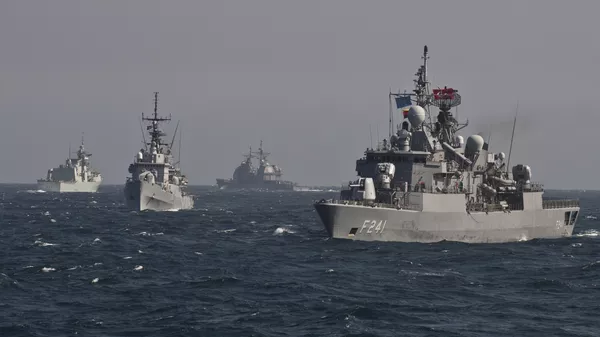MOSCOW (Sputnik) – On Thursday, NATO defense ministers decided to increase its presence in the Black Sea region. According to Stoltenberg, the alliance’s naval groups will increase military exercises and will gather information in the region among other tasks.
"Everything we do will be in line with international commitments and obligations including also in accordance with the Montreux convention [Regarding the Regime of the Straits] … We will have increased presence in the Black Sea but it will be measured, it will be defensive and it will in no way aim at provoking any conflict or escalating tensions," Stoltenberg told at a press conference.
NATO has been increasing its military presence in Eastern Europe and the Black Sea since the outbreak of the conflict in southeastern Ukraine in April 2014, in response to what it considers to be Russia's aggressive foreign policy. Moscow has repeatedly dismissed the Ukraine-related accusations leveled at it, warning that increased NATO activities near the country's borders could undermine regional and global stability.




